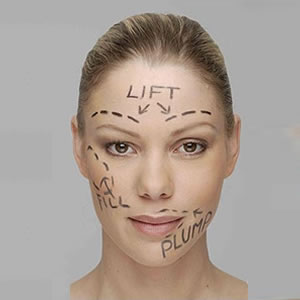 When we think of plastic surgery, we think of something that should be done in moderation. The cautionary tales are all too many. Internet photos, news stories and word of mouth circulate about what happens when someone overuses plastic surgery. They begin to look unnatural and unsightly, thus contradicting the purpose of plastic surgery, which is to beautify a person. Despite these warnings, dependence on plastic surgery is still a legitimate phenomenon. People do not always know when to cut themselves off from plastic surgery, and it becomes an addiction of sorts. Plastic surgery only returns positive results when it is done in tasteful moderation, and those who cannot learn to limit themselves end up altering their appearance for the worse.
When we think of plastic surgery, we think of something that should be done in moderation. The cautionary tales are all too many. Internet photos, news stories and word of mouth circulate about what happens when someone overuses plastic surgery. They begin to look unnatural and unsightly, thus contradicting the purpose of plastic surgery, which is to beautify a person. Despite these warnings, dependence on plastic surgery is still a legitimate phenomenon. People do not always know when to cut themselves off from plastic surgery, and it becomes an addiction of sorts. Plastic surgery only returns positive results when it is done in tasteful moderation, and those who cannot learn to limit themselves end up altering their appearance for the worse.
A dependence on plastic surgery is often mental, stemming from a distorted perception of one’s own appearance. If someone has a damaged perception of their self image, which is often caused by low self esteem or past traumas, they can effect the way the brain interprets one’s own reflection. With the innovation of plastic surgery came the opportunity for people to permanently alter their physical features for the first time. For those who had spent their lives staring into the mirror, wishing they could change their faces, the temptation proved overpowering.
The trouble with this distorted way of thinking is that it is a vicious thought pattern. It informs a person that if they just alter one part of their appearance, they will be happy. But these thoughts never leave when the individual carries out the task. They simply keep repeating. This type of mental unhealthiness informs the person that their appearance is never good enough, so they continue to alter their appearance. it. Plastic surgery is not meant to become a way of life. It is meant to be a one-time procedure, at most a handful of times. Anything beyond that is going to start to look unnatural. People who become dependent on plastic surgery are not aware of how they are morphing their face into something unnatural looking. They are only aware that their appearance must be changed. This is a type of disorder that warrants counseling, not repeated plastic surgery. People struggling with addiction to plastic surgery can find substance abuse counseling Beverly Hills, Miami and New York.